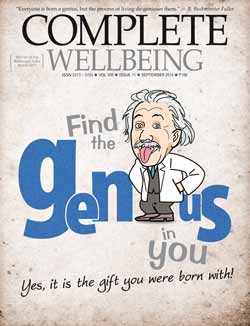
János Plesch, who was Albert Einstein’s friend and physician, narrates an incident in his memoir about a time when the Nobel prize winning scientist was in Hollywood visiting Charlie Chaplin. While driving around the town, the people on the streets gave them a rousing reception. Noticing Einstein’s surprise, Chaplin said, “They’re cheering us both; you because nobody understands you, and me because everybody understands me.”
These two were undoubtedly among the greatest men the last century produced. And yet they were poles apart from each other in their genius. Both these individuals have, in their own unique ways, shaped the world we live in today. While modern science and technology owes a lot to Einstein, Chaplin was the original entertainer, inspiring generations of filmmakers and actors.
Now imagine for a moment, what would have happened had Charlie Chaplin been coerced to study advanced physics, while Albert Einstein found himself before the camera? My guess is that the world would’ve been a very different place, and not in a positive sense. But thankfully, these two geniuses pursued their own paths, instead of conforming to the demands and expectations of others, the way most folks do. They worked with their strengths, instead of trying to improve their weaknesses.
You too can be a genius, provided you recognise your inherent strengths and play to them. Unfortunately, most of us are trained, right from our childhood, to work on improving what we are not good at. In the process, many would-be Chaplins, Einsteins, Pelés, Picassos and Bachs end up living mediocre and unfulfilled lives.
No matter what you currently do, you will be able to do it better—once you understand and follow Jay Niblick’s advice in this month’s cover story. Best-selling author of What’s Your Genius?, Niblick reveals why most people find it difficult to recognise the gift they were born with. “Being a genius isn’t about being super intelligent,” he assures, as he outlines the two qualities that all geniuses have. He then details the ways in which you can identify and maximise your own genius.
I leave you to ponder the words of another great genius. In his autobiography, Mark Twain writes: “Thousands of geniuses live and die undiscovered—either by themselves or by others.” I hope this issue of Complete Wellbeing propels you to not only discover, but also work with, your genius.
Read the full story here.

